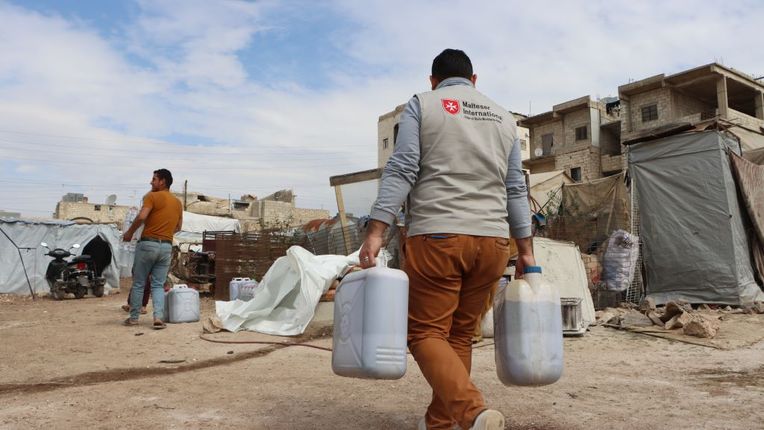
Six months after the earthquake in Syria
It has already been six months since the earthquake in Syria and Türkiye. The population in the affected areas is still suffering from the devastating consequences of the disaster. Due to the war that has been going on for twelve years, the situation in northwestern Syria was already desolate before the disaster. Hardly anyone would have believed that the lives of the people in the region -– characterized by displacement, violence and inhumane living conditions – could get worse. Then the earth shook on February 6. The needs of the population, who were in dire need of humanitarian assistance even before the earthquake struck, multiplied exponentially.
Bilal Al-Kurdi - Bringing smiles back to the people of northwest Syria
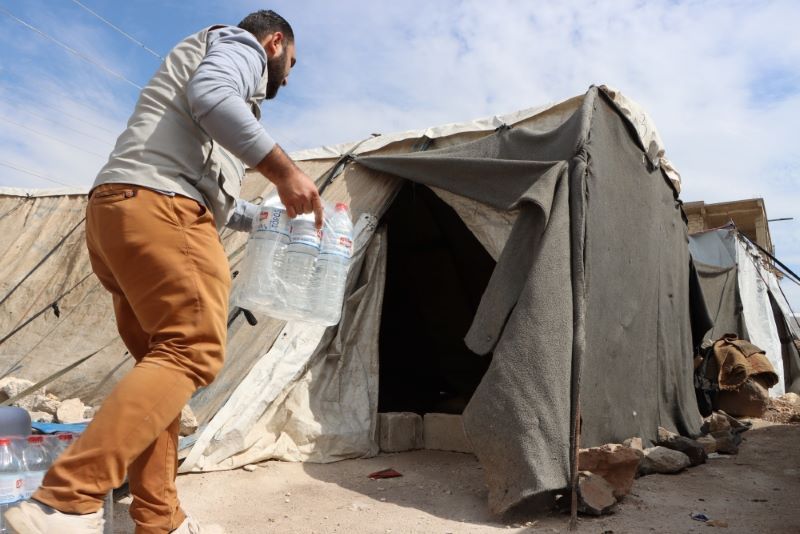
"Six months have passed since the earthquake. Debris from destroyed buildings and infrastructure still needs to be cleared – entire cities were destroyed by the quake in the early morning of February 6. In addition to the physical effects, it is above all the invisible, the psychological wounds that need time to heal. Just a few months ago, when we visited the devastated cities, all we saw were destroyed houses. Now, after several months, we see entire tent cities. And so it goes: once the rubble of the destroyed buildings has been removed, new tents will be erected for the survivors," reports Bilal Al-Kurdi, a staff member of our Syrian partner organization Hand in Hand for Aid Development (HIHFAD).
The destruction in the affected areas in northwestern Syria can hardly be put into words. Many people are left with nothing, having lost everything they ever owned and mourning the loss of family members, friends or acquaintances. "Together, and thanks to the support of Malteser International, we are trying to alleviate the suffering of the people affected and displaced by the earthquake: We distribute food, bread, water, heating material and hygiene items to provide basic supplies. The need is significant amidst the existing humanitarian disaster, and the situation requires continuous humanitarian intervention and substantial international cooperation," explains Bilal Al-Kurdi.
"I truly wish for the day when the war in Syria ends and we can start rebuilding what has been destroyed by the war and the earthquake, to bring back the smiles on the faces of the four million people who have been displaced from their homes and are living in the northwest of Syria," says Bilal Al-Kurd.
Aisha Al-Ahmad - Beacon of hope for people in need
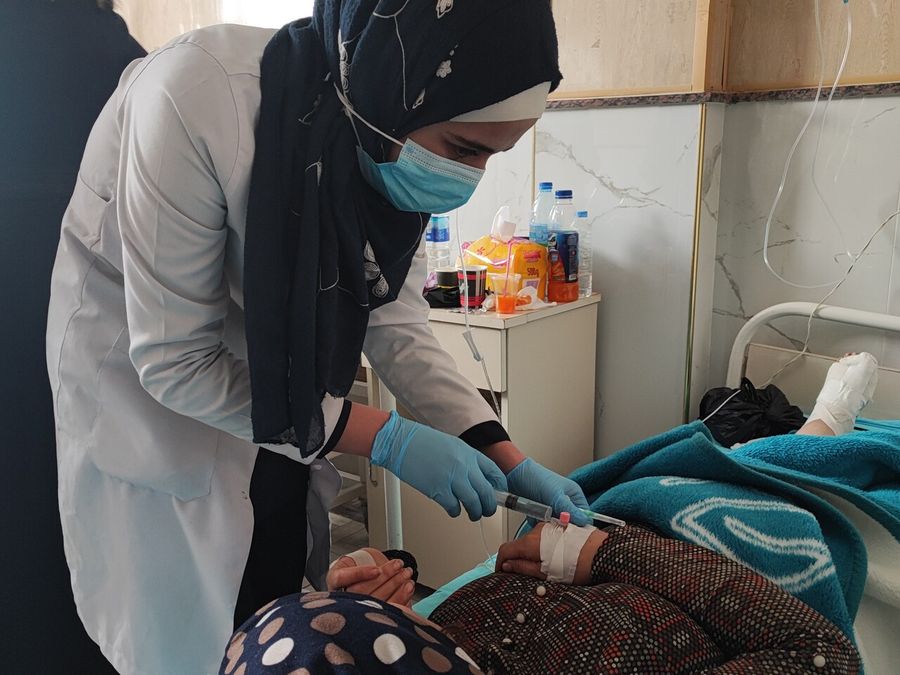
Also damaged in the quake to varying degrees were 66 medical facilities and 419 educational institutions (source: Syria Response Team). The aid workers at the health facilities are among those affected themselves – and yet they are helping where they can. One of them is Aisha Al Ahmad, who works as a nurse for our partner organization Independent Doctors Association (IDA).
She and her family had to seek refuge in a safe place during the quake. Huddled under a crumbling roof, they persevered while listening to the loud sounds of collapsing walls and desperate cries around them. After her family was moved to a safer location, Aisha returned to her job: the hospital where she worked had become a sanctuary amid the chaos, providing medical care to those affected by the earthquake.
The influx of patients from the earthquake zone pushed the facility to its limits and tested the resilience of the staff. Faced with an ever-increasing number of patients, Aisha worked tirelessly day and night to treat wounds, administer medications and show kindness to those who had lost everything. In these difficult times, Aisha and her fellow healthcare workers remain beacons of hope for people in need.
Doctor Ayman Mari - the psychological toll is still high months later
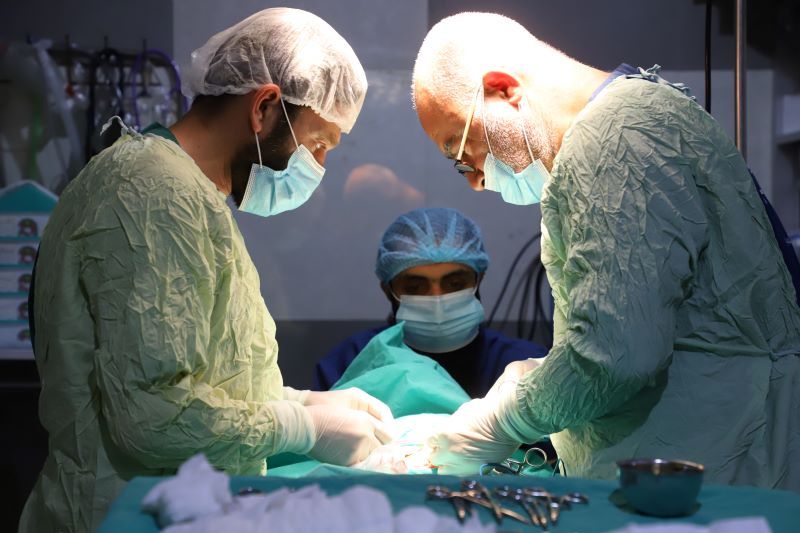
Doctor Ayman Mari works for HIHFAD at Al-Quds Hospital in Idlib. He reports on the chaotic days after the quake: "The medical facilities were not sufficient to care for the large number of injured. In addition, medicines were in short supply and there was a lack of qualified medical staff. Weeks and months have passed since the disaster, and the challenges have shown that staff are able to accomplish a great deal despite modest resources."
The situation remains difficult, and caring for people with serious injuries is particularly challenging. "We see that there are a large number of people with disabilities who need special medical care, such as people who need prostheses after amputations. But there are hardly any centers that specialize in making and fitting prostheses or in physical therapy for injured people."
Doctor Ayman Mari himself is still suffering from the aftermath of the quake: "For me personally, the earthquake has caused great psychological stress. In addition to the negative impact on my family, there is also the fear of another earthquake, as the aftershocks continue to this day."
Ahmed Sadiq - The earthquake has made life even harder
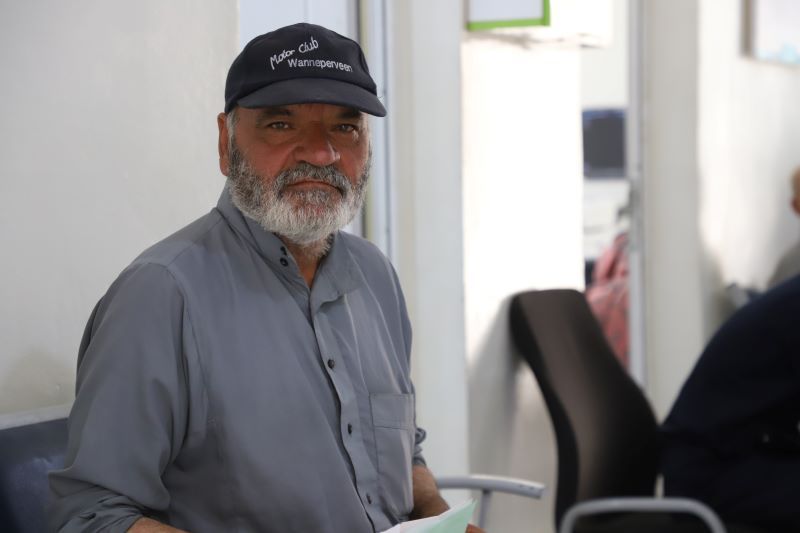
For those affected, people like Bilal Al-Kurdi, Aisha Al-Ahmad and Doctor Ayman Mari are a blessing. Ahmed Sadiq, for example, needs constant medication due to a chronic illness. The earthquake has made his life even harder and more difficult, as Ahmed's house was severely damaged and largely destroyed, making it uninhabitable. Faced with the high cost of restoration and scarce financial resources, Ahmed is unable to repair his house.
He decided to seek refuge in a camp near the town of Bardaqli, which was set up for people made homeless by the earthquake. The camps lack basic sanitation, clean water or adequate food. Ahmed endures the bitter cold and difficult living conditions, but he suffers from the lack of good nutrition and rest necessary for his health.
The 57-year-old regularly visits Al-Quds Hospital to check on his health. He thanks the medical teams at the hospitals and health centers for their constant efforts to provide medical care and hopes for better times ahead. More than 1.2 million people have been affected by the earthquake in northwestern Syria. They continue to need urgent medical and humanitarian assistance, and finally stability as well as economic opportunities for reconstruction.
August 2023








